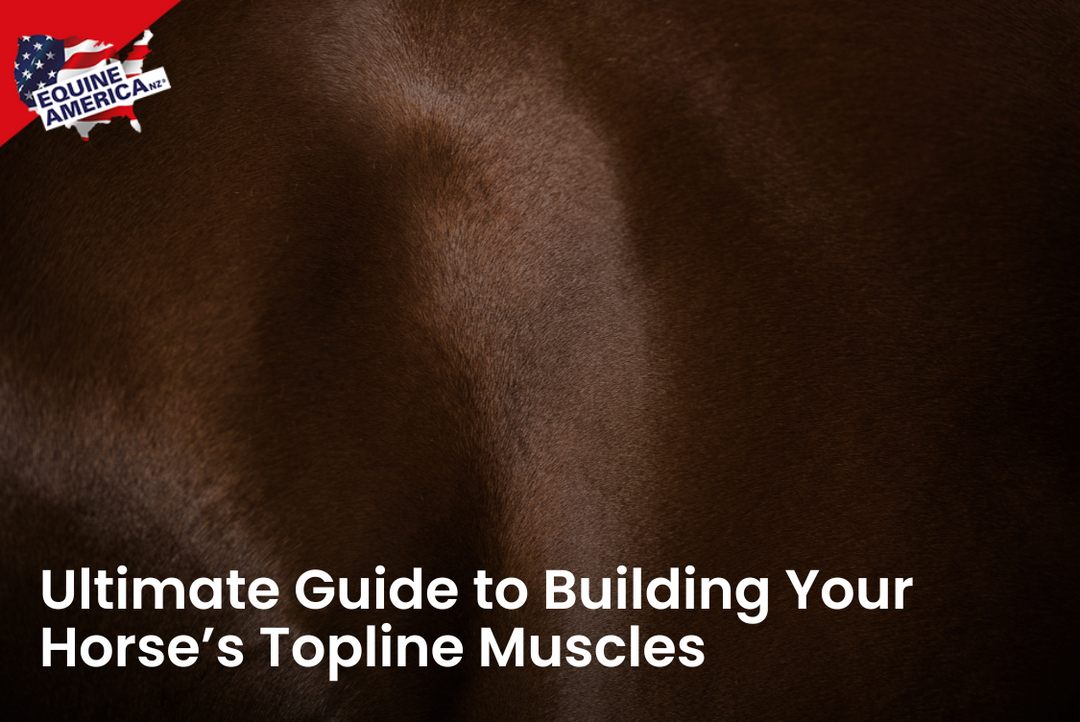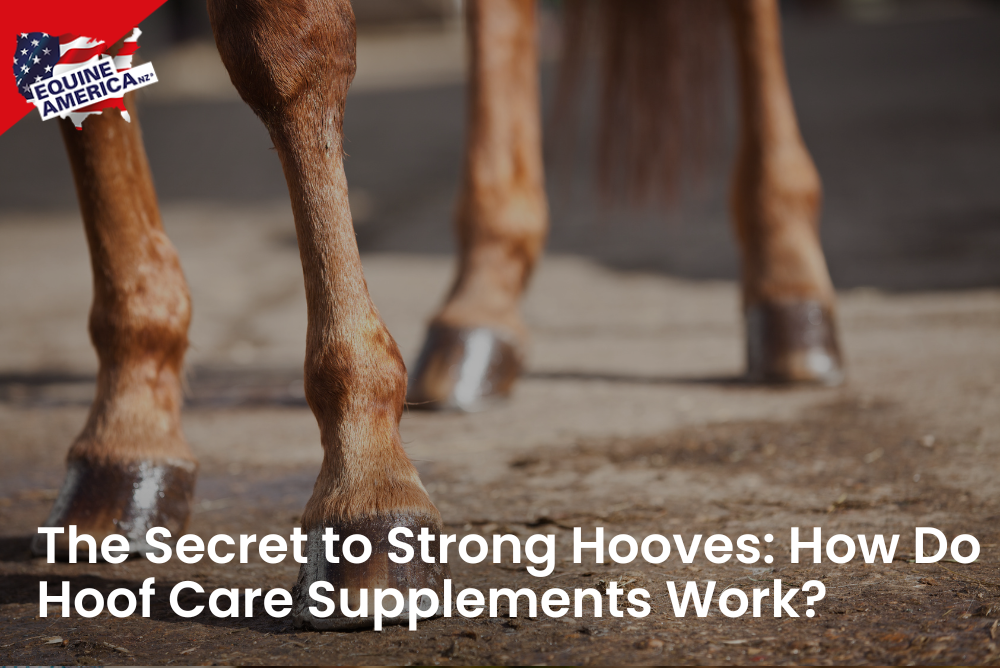
Taking care of a horse’s muscles is essential for performance, recovery, and overall well-being. Whether your horse is a competitive athlete or enjoys leisurely rides, muscle care supplements can make a significant difference. But with so many products available, it’s easy to get lost in the sea of options. This guide is here to help you navigate through the world of horse supplements and find the right ones to support your horse’s muscle health.
Understanding Muscle Health in Horses
Muscle health is crucial for horses. It impacts their ability to move, work, and recover after exercise. Without the right care, horses can suffer from muscle fatigue, soreness, and even long-term damage.
One of the best ways to support muscle health is through proper horse supplements. These supplements are designed to improve muscle function, help with recovery, and reduce soreness after exercise. When used correctly, they can help keep your horse strong and healthy.
But how do you know which supplement to choose? Let’s break it down.
Types of Muscle Care Supplements for Horses
There are many horse supplements and equine products that claim to support muscle health, but not all of them are equal. To make things simpler, we’ll look at the most common types of muscle care supplements and how they help.
1. Amino Acids
Amino acids are the building blocks of protein, which is essential for muscle development. Horses, like all animals, need protein to build and repair muscle tissue. Amino acid supplements can:
- Promote muscle growth
- Improve recovery after exercise
- Help prevent muscle wastage
Key amino acids for horses include lysine and methionine. These are often added to feeds but can also be given as a targeted supplement, especially if your horse has higher demands due to intense training or work.
2. Electrolytes
Electrolytes play a key role in muscle function. When horses sweat, they lose vital salts like sodium, potassium, and chloride. Without these, their muscles can cramp or weaken. Electrolyte supplements:
- Help replace lost salts
- Improve hydration
- Prevent muscle cramping
Giving your horse electrolytes before and after exercise can reduce the risk of muscle fatigue and improve overall performance.
3. Vitamin E and Selenium
Vitamin E and selenium are antioxidants that help protect muscle cells from damage. Horses that lack these nutrients are at risk of muscle degeneration, a condition known as white muscle disease. Supplementing with vitamin E and selenium:
- Supports healthy muscle function
- Reduces oxidative stress on muscles
- Helps prevent muscle soreness
Be careful not to over-supplement with selenium, as too much can be toxic. Always follow dosage instructions on the label.
4. Omega-3 Fatty Acids
Omega-3 fatty acids are known for their anti-inflammatory properties. Horses that have regular muscle strain or stiffness can benefit from omega-3s, which:
- Reduce muscle inflammation
- Promote healthy cell membranes
- Improve overall muscle flexibility
These fatty acids can be found in fish oils or flaxseed-based supplements.
5. Creatine
Though not as commonly used in horses as it is in humans, creatine is a supplement that may improve muscle strength and endurance. Some studies suggest that creatine can:
- Boost energy production in muscle cells
- Improve muscle performance in high-intensity activities
- Aid muscle recovery post-exercise
If your horse is involved in intense sports or activities, creatine might be a useful addition to their diet.
How to Choose the Right Muscle Care Supplement
Choosing the right muscle care supplement depends on several factors, such as your horse’s workload, age, and any existing health conditions. Here are some key points to consider when selecting muscle care supplements:
1. Assess Your Horse’s Needs
Before adding any supplement, it’s important to evaluate what your horse needs. Does your horse struggle with recovery after exercise? Is muscle soreness common after work? Answering these questions can help you determine which supplement is most appropriate.
2. Consult with a Vet
Your vet knows your horse’s health better than anyone. Always consult them before introducing a new supplement, especially if your horse is on any medication or has specific health conditions. A vet can guide you on the right dosage and supplement type.
3. Check the Ingredients
Always read the ingredients list. Some supplements contain fillers or additives that aren’t necessary for your horse’s health. Look for products with high-quality ingredients like amino acids, vitamins, and minerals. Avoid those with added sugars or artificial flavours.
4. Monitor the Results
Once you start your horse on a supplement, it’s crucial to monitor their progress. Are they recovering faster? Do they seem more comfortable after work? If the supplement is effective, you should notice improvements within a few weeks.
Benefits of Muscle Care Supplements
Adding muscle care supplements to your horse’s diet can offer numerous benefits. If you’re still on the fence about them, consider these positive effects:
- Improved Performance: By supporting muscle function, your horse can perform better in activities such as jumping, racing, or dressage.
- Faster Recovery: Supplements can reduce muscle soreness and fatigue, allowing your horse to recover quicker after hard work.
- Increased Strength: Over time, the right supplements can help your horse build muscle, resulting in increased power and stamina.
- Reduced Risk of Injury: A stronger, healthier muscle system is less prone to injury, which can keep your horse in peak condition longer.
Common Mistakes to Avoid with Supplements
Although supplements can be beneficial, they should be used correctly to avoid potential problems. Here are some mistakes to watch out for:
- Over-supplementing: Giving too many supplements can overload your horse’s system and cause health issues. Stick to the recommended dosage.
- Ignoring Diet: Supplements are just that – supplements. They’re meant to complement a balanced diet, not replace proper feeding.
- Not Consulting a Vet: It’s essential to get professional advice before adding supplements, especially if your horse has underlying health issues.
Frequently Asked Questions
Can all horses benefit from muscle care supplements?
Not all horses need muscle supplements. Horses involved in heavy work or those with muscle-related issues will benefit the most. Always consult a vet before starting any new supplement.
How quickly will I see results after giving my horse muscle supplements?
Most horse owners notice improvements within 2-4 weeks. However, the results may vary depending on the supplement and your horse's condition.
Are muscle supplements safe for all ages?
Yes, but younger and older horses may have different needs. Always check the product label and consult a vet to ensure the supplement is suitable for your horse's age.
Do supplements replace a balanced diet?
No, supplements work alongside a balanced diet. They’re designed to fill in nutritional gaps, not replace essential nutrients from forage and feed.
What’s the most important nutrient for muscle recovery?
Amino acids are key for muscle recovery, especially lysine. These help repair and rebuild muscle tissue after exercise.
Ready to Support Your Horse’s Muscle Health?
Your horse’s muscle health matters, and the right supplements can make a big difference. If you're looking for high-quality muscle care supplements, check out the range at Equine America NZ. They offer a wide selection of horse supplements and equine products to support your horse’s overall well-being. Ensure your horse gets the best care possible today! Your horse will thank you for it!
Please give us a call at Equine America NZ today at 0800 440 888 to learn more or leave an enquiry.




